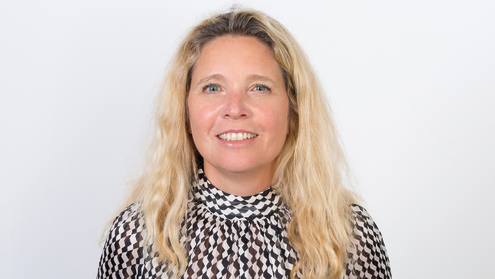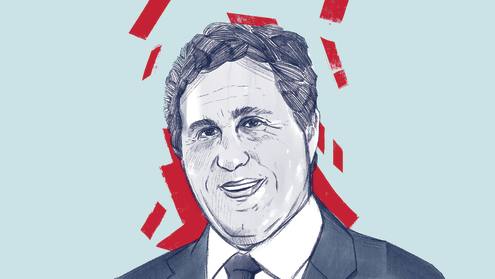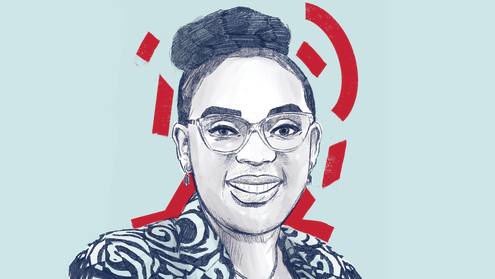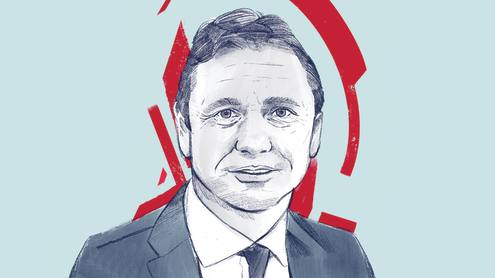Energy efficiency has not typically been a topic to get your blood pumping. It involves measures as apparently dull as improved building insulation and heating systems to better public lighting and industrial processes.
But geopolitics has now put the topic at the centre of the political discussion. Several governments across Europe have recently passed legislation focused on short-term measures to regulate the temperature in private homes and businesses, cutting public lighting at night, or forbidding the heating of private pools with electricity and gas. Meantime, European citizens and business, supported by public incentives, are investing heavily in energy efficiency measures in the face of the eye-watering energy bills expected during the coming winter.
The economic and social impact of record global gas prices – a result of Russia’s war in Ukraine – is massive. Governments are implementing fiscal measures to ease the burden on households and businesses, and many industrial players across Europe are preparing for a full halt to gas flows. This comes at a time when French nuclear facilities face reduced availability due to corrosion, and record temperatures force power plants to shut because overheated rivers can no longer cool them, putting further upward pressure on electricity prices. All of this is a threat to Europe’s energy security and, ultimately, its economic prosperity and social stability.
The quest for efficiency
Saving energy – in the short and long term – is key to confronting these issues. So far, energy efficiency has been seen mainly as a tool to combat climate change and environmental deterioration, where it does have a crucial role. However, we need to be alive to its other important role: safeguarding the security of our energy supply.
Energy efficiency does not stand alone in this context. The broad set of measures required to decarbonise our economies is also needed to solve Europe’s energy security problem. This ranges from the further mass deployment of renewable energies, such as wind and solar, to the build-out of energy storage and the completion of Europe’s internal energy market. It includes the promotion of more innovative technologies, such as green hydrogen, that will help us decarbonise sectors for which current technologies don’t quite fit the bill.
Energy is a security issue. Russia has started an energy war against Europe by gradually reducing its gas shipments since 2021, mostly with flimsy excuses, but in some cases also as an open punishment for unwelcome political actions. This has only been possible because the EU is highly dependent on Russian gas. Over the past five years, Russian imports made up about 39% of EU consumption and, while alternative import routes exist, their capacity is insufficient to fully replace Russian gas in the short term.
Given that Russian gas shipment will most likely come to a full halt later this year, new gas infrastructure projects that diversify Europe’s gas supplies are needed urgently to keep our homes warm and our industries running.
Make no mistake, the real challenge lies not in new gas infrastructure. The European Commission (EC) estimated that, for us to become independent of Russian gas, an additional investment in new gas infrastructure of about €10bn is needed, while €210bn of additional investment is required in energy efficiency, renewable energies and electricity networks.
new gas infrastructure projects that diversify Europe’s gas supplies are needed urgently to keep our homes warm and our industries running
This need comes on top of those investments required to achieve Europe’s climate targets. This investment challenge cannot be shouldered by the public sector alone; we must collaborate with the private sector. We need appropriate policy and regulatory frameworks that support and expedite energy projects. Permit procedures for wind and solar projects are often too lengthy and cumbersome; carbon prices are too volatile to be a credible investment signal; the benefits of energy efficiency investments are often too dispersed to provide a clear investment signal for homeowners and landlords.
Government has a further vital role in improving our energy security and lowering the cost of the energy transition: to complete the EU’s internal market for energy. This will allow clean power to flow freely across Europe, whether generated at offshore wind farms in the North Sea or through solar panels in southern Europe.
Private money
Private finance will be needed to meet the funding requirements of all these developments. Public budgets are already stretched after the debt crisis and the pandemic, and in any case the European energy sector is mostly in private ownership. Public banks, such as the European Investment Bank (EIB), can play a significant role in drawing private investment to this area.
The EIB deploys a number of financial instruments, such as loans, guarantees or risk-sharing facilities, to support the financing of energy projects. The bank’s involvement provides an important signal of strength to private investors and, thus channels funds to the right projects. We also de-risk projects by taking particular kinds of project risks, to crowd-in private funding.
The EIB is one of the biggest finance providers to the European renewables sector. In 2021, we invested almost €6bn in solar and wind projects across Europe and beyond. Our involvement in the European offshore wind sector provides an example of the impact a public bank can have. We financed the first offshore wind projects in the early 2000s, when the sector was considered too risky for commercial banks, and to date we have financed 40% of the offshore wind capacity in the EU.
Today, we are involved in supporting the next step offshore – the development of floating offshore wind farms, which allow the deployment of turbines in deeper water. We are financing new projects – in Portugal, for example – and supporting research and development programmes, as well as the build-out of much needed port infrastructure.
Our support for the energy transition must not stop at Europe’s borders. Climate change is a global issue, and energy markets are global, too. High oil and gas prices transmit Europe’s energy security issues to other parts of the planet, with implications for development. Several south Asian countries are struggling to find fuel supplies on international markets, while other gas-exporting countries are reported to be rationing gas at home to sell abroad at current high prices. It is vital to support clean energy and energy efficiency in countries that are not directly dependent on Russian fossil fuels or even export gas. This helps the climate, and restores energy security globally.
The EIB clean energy projects are global, from geothermal in Kenya and wind in Brazil to solar in Morocco and energy efficiency in Uzbekistan. We are helping countries around the world establish a global hydrogen economy, which will cover Europe’s hydrogen needs and provide ample opportunities for African countries to access new, clean technologies, increasing their own energy security.
Hydrogen is significant, because it is not enough to finance investment projects using technologies we already know. The International Energy Agency projects that, while most of the reductions in carbon emissions to 2030 will come from technologies already on the market today, almost half of the reductions needed by 2050 will come from technologies currently at demonstration or prototype phase. These include low-emission hydrogen for sectors like steel, low-emission ammonia for marine transport and the electrification of road haulage.
Fresh ideas
Innovation is not just about massive, individually transformative projects. It is an accretion of new ideas that add up to a major positive shift within specific sectors. This is why, over the past few years, the EIB has transformed a swathe of its work from massive infrastructure projects towards smaller deals with start-ups developing new technologies.
With a big increase in our venture debt financing, we have backed Germany’s digital freight forwarder company Sennder, whose software cuts the emissions of short-haul freight, and French smart battery company Forsee Power, among dozens of others. Some of our financing has also gone to companies that have failed, because we all need to take a risk on innovation when the stakes are so high. But, overall, our portfolio has been profitable.
Our innovation work is vital to Europe. Venture capital investment in EU-based climate start-ups and scale-ups has been 11 times higher over the past five years than between 2009 and 2014, reaching about €2.2bn in 2020. Still, EU climate tech start-ups trail their international counterparts in their ability to scale. Over the past five years, they only benefited from 6.9% of all later-stage investment in climate tech start-ups, far behind the US (44%) and China (40%).
Over the coming years, we will focus on innovation in hard-to-abate sectors, such as steel and chemicals. For these industries, low-carbon solutions do not yet exist or are not yet economically viable. Yet these sectors must play a major role in the transformation to a carbon-neutral society. Without steel, we could not build wind farms, after all. At the same time, these industries are badly affected by high gas prices.
The EIB is already supporting construction of a facility for low-carbon ammonia in Spain, as well as for green steel in Sweden, both based on renewable hydrogen. We have also partnered with the EC and Bill Gates’s Breakthrough Energy to increase our activity in this field. Many more initiatives will follow.
Achieving a secure energy supply for Europe will not be easy. It requires time and significant investment. However, it is also a tremendous opportunity. We can stand up for our values by securing our independence from Russian fossil fuels, even as we secure the future of humanity by fighting global warming.
Werner Hoyer is president of the European Investment Bank.












